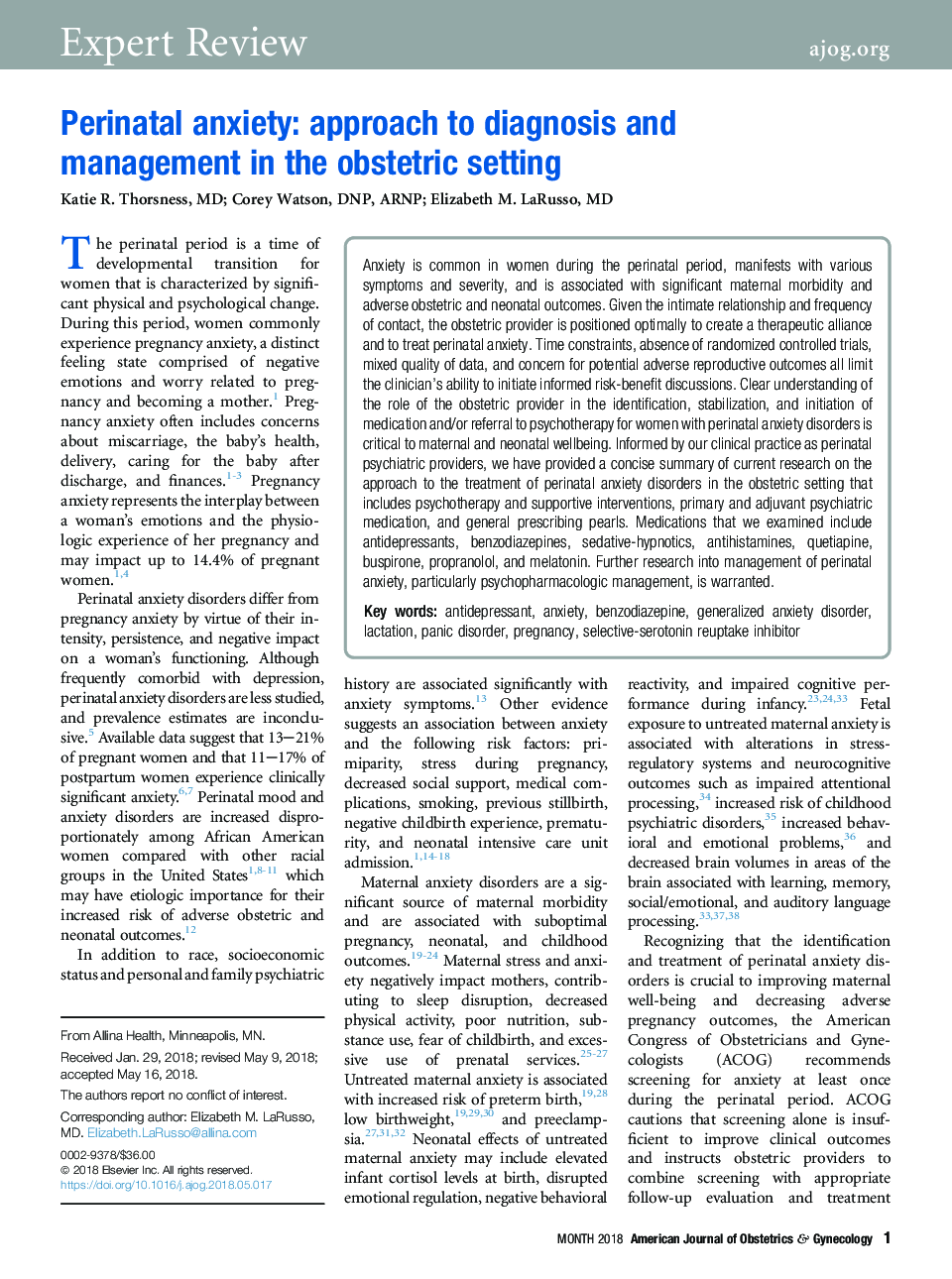| Article ID | Journal | Published Year | Pages | File Type |
|---|---|---|---|---|
| 11018284 | American Journal of Obstetrics and Gynecology | 2018 | 20 Pages |
Abstract
Anxiety is common in women during the perinatal period, manifests with various symptoms and severity, and is associated with significant maternal morbidity and adverse obstetric and neonatal outcomes. Given the intimate relationship and frequency of contact, the obstetric provider is positioned optimally to create a therapeutic alliance and to treat perinatal anxiety. Time constraints, absence of randomized controlled trials, mixed quality of data, and concern for potential adverse reproductive outcomes all limit the clinician's ability to initiate informed risk-benefit discussions. Clear understanding of the role of the obstetric provider in the identification, stabilization, and initiation of medication and/or referral to psychotherapy for women with perinatal anxiety disorders is critical to maternal and neonatal wellbeing. Informed by our clinical practice as perinatal psychiatric providers, we have provided a concise summary of current research on the approach to the treatment of perinatal anxiety disorders in the obstetric setting that includes psychotherapy and supportive interventions, primary and adjuvant psychiatric medication, and general prescribing pearls. Medications that we examined include antidepressants, benzodiazepines, sedative-hypnotics, antihistamines, quetiapine, buspirone, propranolol, and melatonin. Further research into management of perinatal anxiety, particularly psychopharmacologic management, is warranted.
Keywords
Related Topics
Health Sciences
Medicine and Dentistry
Medicine and Dentistry (General)
Authors
Katie R. MD, Corey DNP, ARNP, Elizabeth M. MD,
